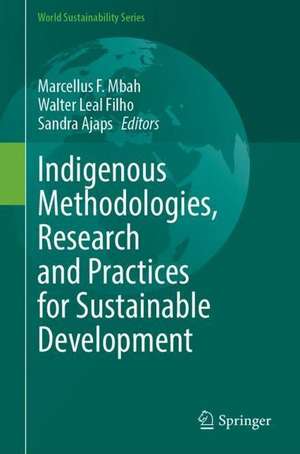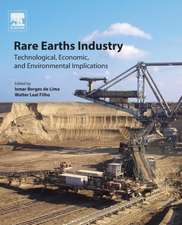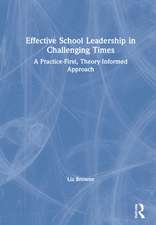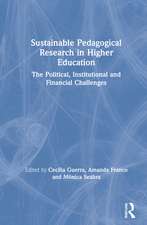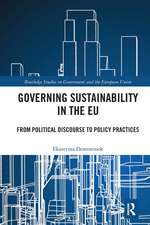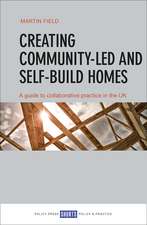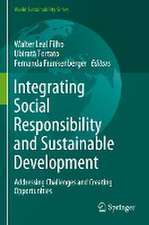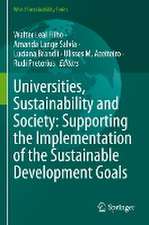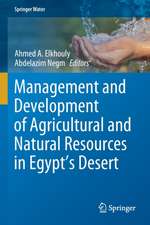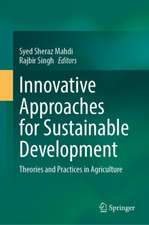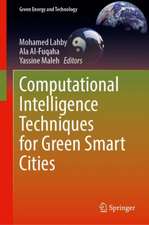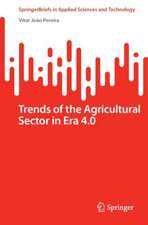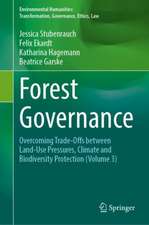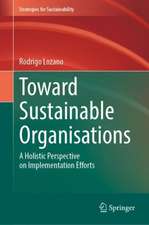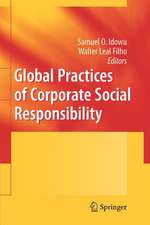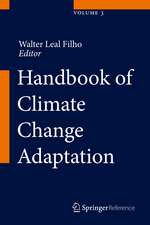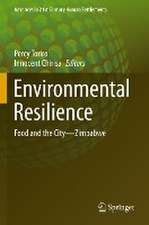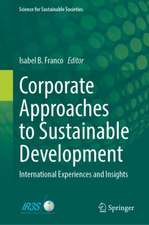Indigenous Methodologies, Research and Practices for Sustainable Development: World Sustainability Series
Editat de Marcellus F. Mbah, Walter Leal Filho, Sandra Ajapsen Limba Engleză Hardback – 22 oct 2022
Indigenous peoples can be found in practically every region of the world, living on ancestral homelands in major cities, rainforests, mountain regions, desert plains, the arctic, and small Pacific Islands. Their languages, knowledges, and values are rooted in the landscapes and natural resources within their territories.
However, many Indigenous peoples arenow minorities within their homelands and globally, and there is a dearth of research based on Indigenous epistemologies and methodologies. Furthermore, academic research on Indigenous peoples is typically based on western lenses. Thus, the paucity of Indigenous methodologies within mainstream research discourses present challenges for implementing practical research designs and interpretations that can address epistemological distinctiveness within Indigenous communities.
There is therefore the need to articulate, as well as bring to the nexus of research aimed at fostering sustainable development, a decolonising perspective in research design and practice.
This is what this book wants to achieve. The contributions critically reflect on Indigenous approaches to research design and implementation, towards achieving the sustainable development goals, as well as the associated challenges and opportunities. The contributions also advanced knowledge, theory, and practice of Indigenous methodologies for sustainable development.
| Toate formatele și edițiile | Preț | Express |
|---|---|---|
| Paperback (1) | 952.26 lei 6-8 săpt. | |
| Springer International Publishing – 22 oct 2023 | 952.26 lei 6-8 săpt. | |
| Hardback (1) | 958.38 lei 6-8 săpt. | |
| Springer International Publishing – 22 oct 2022 | 958.38 lei 6-8 săpt. |
Din seria World Sustainability Series
- 18%
 Preț: 1241.73 lei
Preț: 1241.73 lei - 20%
 Preț: 882.19 lei
Preț: 882.19 lei - 18%
 Preț: 898.26 lei
Preț: 898.26 lei - 18%
 Preț: 1563.56 lei
Preț: 1563.56 lei - 18%
 Preț: 1015.38 lei
Preț: 1015.38 lei - 15%
 Preț: 654.77 lei
Preț: 654.77 lei - 18%
 Preț: 1668.06 lei
Preț: 1668.06 lei - 24%
 Preț: 747.95 lei
Preț: 747.95 lei - 18%
 Preț: 1116.09 lei
Preț: 1116.09 lei - 18%
 Preț: 1416.29 lei
Preț: 1416.29 lei - 18%
 Preț: 1561.82 lei
Preț: 1561.82 lei - 15%
 Preț: 648.05 lei
Preț: 648.05 lei - 18%
 Preț: 735.21 lei
Preț: 735.21 lei - 18%
 Preț: 2509.51 lei
Preț: 2509.51 lei - 15%
 Preț: 723.98 lei
Preț: 723.98 lei - 15%
 Preț: 650.19 lei
Preț: 650.19 lei - 18%
 Preț: 1244.89 lei
Preț: 1244.89 lei - 15%
 Preț: 649.87 lei
Preț: 649.87 lei - 18%
 Preț: 787.15 lei
Preț: 787.15 lei - 18%
 Preț: 1395.94 lei
Preț: 1395.94 lei - 15%
 Preț: 649.54 lei
Preț: 649.54 lei - 15%
 Preț: 652.17 lei
Preț: 652.17 lei - 18%
 Preț: 1555.51 lei
Preț: 1555.51 lei - 18%
 Preț: 1141.83 lei
Preț: 1141.83 lei - 18%
 Preț: 953.35 lei
Preț: 953.35 lei - 18%
 Preț: 1390.59 lei
Preț: 1390.59 lei - 15%
 Preț: 650.55 lei
Preț: 650.55 lei - 18%
 Preț: 915.48 lei
Preț: 915.48 lei - 18%
 Preț: 1240.16 lei
Preț: 1240.16 lei - 18%
 Preț: 909.33 lei
Preț: 909.33 lei - 15%
 Preț: 648.42 lei
Preț: 648.42 lei - 18%
 Preț: 905.85 lei
Preț: 905.85 lei - 18%
 Preț: 962.98 lei
Preț: 962.98 lei - 18%
 Preț: 1018.06 lei
Preț: 1018.06 lei - 18%
 Preț: 967.22 lei
Preț: 967.22 lei - 18%
 Preț: 1403.22 lei
Preț: 1403.22 lei - 18%
 Preț: 1017.92 lei
Preț: 1017.92 lei - 18%
 Preț: 965.97 lei
Preț: 965.97 lei - 18%
 Preț: 972.00 lei
Preț: 972.00 lei - 18%
 Preț: 1230.84 lei
Preț: 1230.84 lei
Preț: 958.38 lei
Preț vechi: 1168.76 lei
-18% Nou
Puncte Express: 1438
Preț estimativ în valută:
183.41€ • 199.15$ • 154.06£
183.41€ • 199.15$ • 154.06£
Carte tipărită la comandă
Livrare economică 22 aprilie-06 mai
Preluare comenzi: 021 569.72.76
Specificații
ISBN-13: 9783031123252
ISBN-10: 3031123255
Pagini: 448
Ilustrații: IX, 448 p. 45 illus., 32 illus. in color.
Dimensiuni: 155 x 235 mm
Greutate: 0.82 kg
Ediția:1st ed. 2022
Editura: Springer International Publishing
Colecția Springer
Seria World Sustainability Series
Locul publicării:Cham, Switzerland
ISBN-10: 3031123255
Pagini: 448
Ilustrații: IX, 448 p. 45 illus., 32 illus. in color.
Dimensiuni: 155 x 235 mm
Greutate: 0.82 kg
Ediția:1st ed. 2022
Editura: Springer International Publishing
Colecția Springer
Seria World Sustainability Series
Locul publicării:Cham, Switzerland
Cuprins
Unpacking Key Terms: Sustainable Development, Indigenous Knowledges, Methodology.- Decolonisation of Research Methodologies Toward Sustainable Development in Indigenous Settings.- On the Impossibility of Instrumentalising Indigenous Methodologies for the Sustainable Development Agenda.- Deconstructing Community-Based Research for Sustainable Development: The Role of Indigenous Knowledge Holders.- The Iloco Ammu as Indigenous Research Ontology, Epistemology, and Methodology.
Textul de pe ultima copertă
This book states that whilst academic research has long been grounded on the idea of western or scientific epistemologies, this often does not capture the uniqueness of Indigenous contexts, and particularly as it relates to the achievement of the United Nations Sustainable Development Goals (SDGs). The SDGs were announced in 2015, accompanied by 17 goals and 169 targets. These goals are the means through which Agenda 2030 for sustainable development is to be pursued and realised over the next 15 years, and the contributions of Indigenous peoples are essential to achieving these goals.
Indigenous peoples can be found in practically every region of the world, living on ancestral homelands in major cities, rainforests, mountain regions, desert plains, the arctic, and small Pacific Islands. Their languages, knowledges, and values are rooted in the landscapes and natural resources within their territories.
However, many Indigenous peoples arenow minorities within their homelands and globally, and there is a dearth of research based on Indigenous epistemologies and methodologies. Furthermore, academic research on Indigenous peoples is typically based on western lenses. Thus, the paucity of Indigenous methodologies within mainstream research discourses present challenges for implementing practical research designs and interpretations that can address epistemological distinctiveness within Indigenous communities.
There is therefore the need to articulate, as well as bring to the nexus of research aimed at fostering sustainable development, a decolonising perspective in research design and practice.
This is what this book wants to achieve. The contributions critically reflect on Indigenous approaches to research design and implementation, towards achieving the sustainable development goals, as well as the associated challenges and opportunities. The contributions also advanced knowledge, theory, and practice of Indigenous methodologies for sustainable development.
Caracteristici
Gives interdisciplinary outputs on best practices on indigenous knowledge and sustainable development Provides documentation of projects, institutional policies, innovative methods and tools, and research outputs Covers a wide range of disciplines
